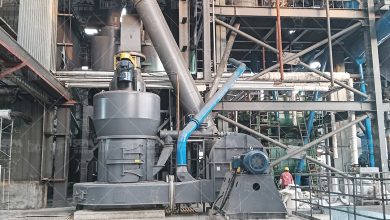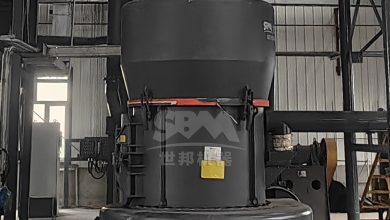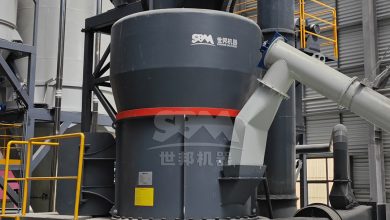Advantages and Features of Large Coal Gangue Grinding Mills
Introduction to Coal Gangue Processing
Coal gangue, a solid waste generated during coal mining and washing processes, has become a significant environmental concern worldwide. With the increasing emphasis on sustainable development and circular economy, the utilization of coal gangue has gained substantial attention. Large coal gangue grinding mills play a pivotal role in transforming this industrial byproduct into valuable resources for construction materials, cement production, and other applications. This comprehensive analysis explores the technical advantages and operational features of modern coal gangue grinding equipment.
Technical Requirements for Coal Gangue Grinding
Coal gangue presents unique challenges in grinding operations due to its variable composition, hardness, and moisture content. Effective processing requires equipment capable of handling materials with compressive strength ranging from 30-80 MPa and moisture levels up to 15%. The grinding system must accommodate the abrasive nature of gangue while maintaining consistent output quality and operational efficiency.
Key Advantages of Modern Coal Gangue Grinding Systems
High Efficiency and Energy Savings
Contemporary grinding mills incorporate advanced crushing principles and optimized mechanical designs to achieve remarkable energy efficiency. Compared to traditional grinding systems, modern equipment can reduce specific energy consumption by 30-40% while maintaining or even improving throughput rates. The integration of intelligent control systems further enhances operational efficiency by automatically adjusting parameters based on real-time processing conditions.

Precision Particle Size Control
The ability to produce consistent particle size distributions is crucial for downstream applications of coal gangue powder. Advanced classification systems, including vertical turbine classifiers and dynamic separators, enable precise control over final product fineness. This ensures optimal performance in applications such as cement additives, concrete admixtures, and ceramic raw materials.
Enhanced Durability and Reliability
Manufacturers have addressed the abrasive nature of coal gangue through innovative material selection and mechanical design. Special alloy compositions for grinding elements, improved wear protection systems, and robust structural components significantly extend equipment service life. Maintenance intervals have been optimized through accessible design features and predictive maintenance capabilities.
Environmental Compliance
Modern grinding systems incorporate comprehensive environmental protection measures, including high-efficiency pulse-jet dust collectors achieving filtration efficiency exceeding 99.9%. Advanced noise reduction technologies maintain operational noise levels below 80 dB, while closed-system designs prevent material leakage and dust emission.
Recommended Equipment Solutions
SCM Ultrafine Mill for High-Fineness Applications
For operations requiring ultra-fine coal gangue powder, our SCM Ultrafine Mill represents the optimal solution. This advanced grinding system processes materials with input sizes up to 20mm and delivers output fineness ranging from 325 to 2500 mesh (D97 ≤ 5μm). With capacity options from 0.5 to 25 tons per hour across different models, the SCM series accommodates various production requirements.
The mill’s technological advantages include:
- Energy Efficiency: 30% lower energy consumption compared to jet mills with double the production capacity
- Intelligent Control: Automatic feedback system for consistent product fineness
- Precision Classification: Vertical turbine classifier ensuring accurate particle size distribution
- Durable Construction: Specially hardened grinding rollers and rings with significantly extended service life
- Environmental Performance: Pulse dust collection system exceeding international standards with noise levels below 75dB
The operational principle involves main motor-driven multi-layer grinding rings creating centrifugal force to disperse materials through grinding channels. The progressive grinding action, combined with efficient cyclone collection and pulse dust removal systems, ensures optimal powder quality and collection efficiency.

LM Series Vertical Roller Mill for Large-Scale Operations
For high-capacity coal gangue processing requirements, the LM Series Vertical Roller Mill offers unparalleled performance. This integrated system combines crushing, grinding, and classification functions within a compact footprint, reducing installation space by 50% compared to traditional systems. The equipment handles input materials up to 50mm and produces finished powder with fineness adjustable from 30 to 325 mesh (special models achieving 600 mesh).
Key technical advantages include:
- Compact Design: Integrated system functionality enabling outdoor installation and reducing civil engineering costs by 40%
- Low Operating Costs: Non-contact grinding roller and table design triples wear part lifespan while reducing energy consumption by 30-40% compared to ball mill systems
- Intelligent Control: Expert automatic control system supporting remote/local operation切换 with real-time parameter monitoring
- Environmental Standards: Fully sealed negative pressure operation maintaining dust emissions below 20mg/m³ with operational noise ≤80dB(A)
The operational principle features main motor-driven grinding table rotation through a reduction gear. Material enters through the central feed chute and spreads uniformly under centrifugal force. Hydraulically loaded grinding rollers apply compression force for bed comminution, with qualified fine powder carried by hot air to the classifier while coarse material returns for regrinding.
Operational Considerations for Coal Gangue Grinding
Material Preparation and Feeding
Optimal grinding performance begins with proper material preparation. Pre-crushing to appropriate feed size, moisture control, and consistent feeding rates significantly impact mill efficiency and product quality. Modern grinding systems incorporate integrated feeding and pre-processing equipment to ensure stable operation.
System Integration and Automation
Comprehensive grinding solutions include complete system integration with auxiliary equipment such as feeders, elevators, classifiers, and dust collectors. Advanced automation systems monitor and control all process parameters, optimizing performance while minimizing operator intervention.
Maintenance and Service Life Optimization
Proactive maintenance strategies, including regular inspection of wear parts, lubrication system monitoring, and vibration analysis, maximize equipment availability and service life. Modern designs facilitate quick replacement of critical components, reducing downtime during maintenance operations.

Economic and Environmental Benefits
The implementation of advanced coal gangue grinding technology delivers substantial economic returns through reduced energy consumption, lower maintenance costs, and increased production efficiency. Environmentally, these systems contribute to waste utilization, reduced landfill requirements, and decreased natural resource consumption by transforming industrial byproducts into valuable materials.
Future Development Trends
The evolution of coal gangue grinding technology continues toward higher efficiency, greater intelligence, and enhanced environmental performance. Emerging trends include the integration of artificial intelligence for process optimization, development of novel wear-resistant materials, and implementation of comprehensive digital twin systems for predictive maintenance and operational planning.
Conclusion
Modern large coal gangue grinding mills represent sophisticated engineering solutions that effectively address the technical challenges of processing this industrial byproduct. Through continuous technological innovation, equipment manufacturers have developed systems that combine high efficiency, operational reliability, and environmental sustainability. The selection of appropriate grinding technology, whether the SCM Ultrafine Mill for high-fineness requirements or the LM Series Vertical Roller Mill for large-scale operations, depends on specific application needs, production capacity, and final product specifications. As technology advances, these grinding systems will continue to play a crucial role in promoting sustainable development through effective industrial solid waste utilization.





